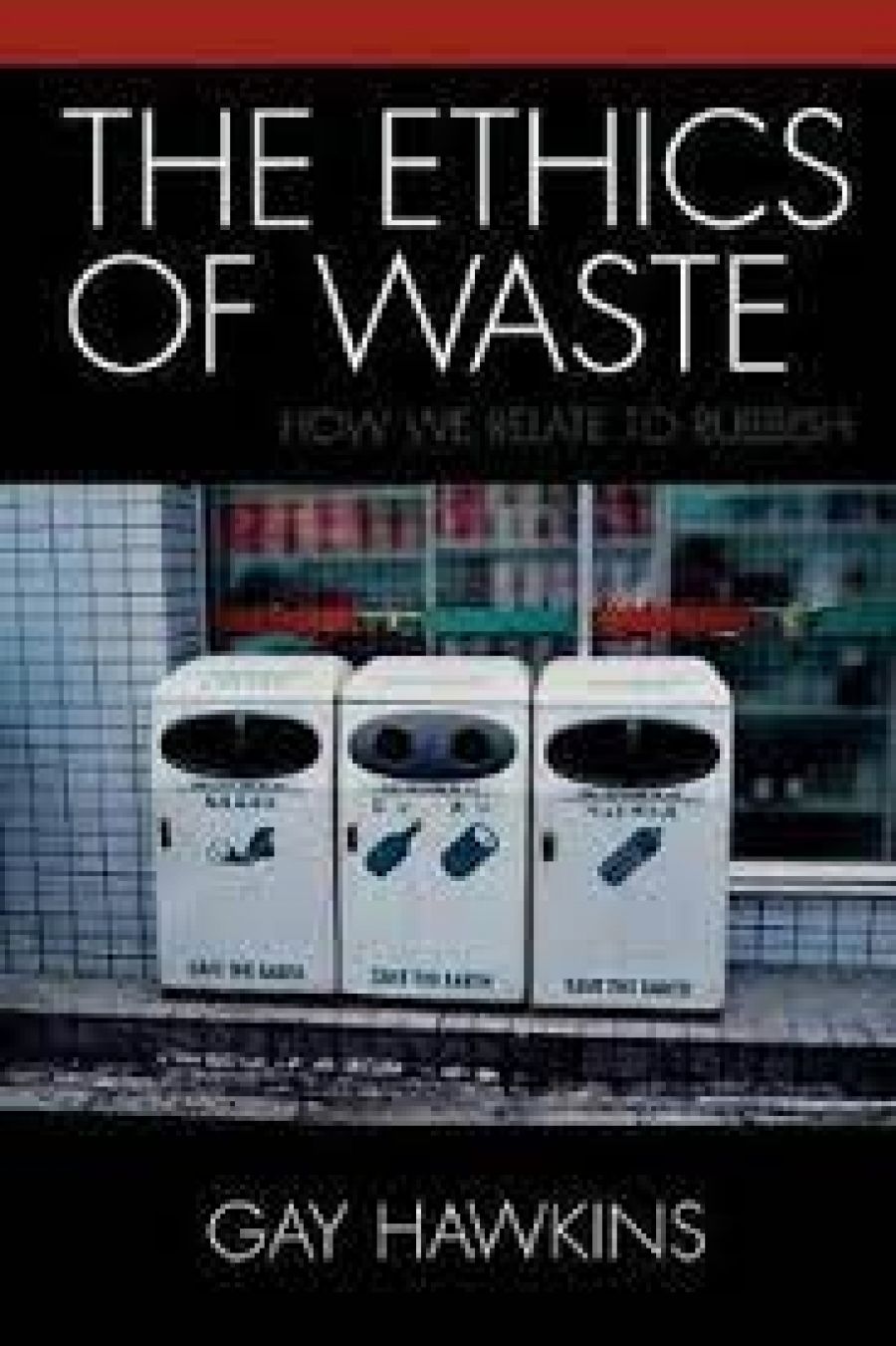
- Free Article: No
- Contents Category: Non-fiction
- Custom Article Title: Rory Dufficy reviews 'The Ethics of Waste' by Gay Hawkins
- Review Article: Yes
- Article Title: Rory Dufficy reviews 'The Ethics of Waste' by Gay Hawkins
- Online Only: No
- Custom Highlight Text:
There are few times we use words related to what we throw away in any sort of positive manner; if, for example, this weren’t a nuanced, careful book, I might call it trash. Certainly, one might refer to, say, a crime novel or a Jerry Bruckheimer film as ‘trash’, but mean it with love and affection, and ‘wasted’ or ‘trashed’ are words used with affection and some pride by people when referring to drug-fuelled exploits. In general, though, we use such words – trash, junk, garbage, waste, rubbish – in a pejorative sense, and it is this sense of waste that Hawkins wants to challenge and complicate in this brief study.
- Book 1 Title: The Ethics of Waste
- Book 1 Subtitle: How we relate to rubbish
- Book 1 Biblio: UNSW Press, $34.95 pb, 151 pp
It is perhaps appropriate that this book, which studies various practices and objects of waste is composed as a series of fragments. The Romantics loved that form, just as they loved other examples, like ruins, of the disinherited, the neglected. This rich relationship might have been an apt starting point for a different book, but Hawkins is concerned with contemporary practices, and with finding a way towards an accommodation with waste, an ethics that avoids easy dichotomies and dogmatic moralism.
Her position is fully articulated only in the last chapter, the previous chapters comprising a sort of sidelong wisdom of alternative ways to dig beneath the rubbish. It is in the chapter on worms that we are presented with a wholly different approach to waste, a generative, positive relationship to the discarded. Of course, as Hawkins knows, worms do not exist in a commodity culture, but their natural relationship to waste can be seen in, say, a child playing with the box the fridge came in. At one point, Hawkins discusses W.G. Sebald, that poet of waste, and her book teaches us how we might come closer to the outlook of Max Ferber in The Emigrants (1972), who ‘felt closer to dust … than to light, air, or water’.


Comments powered by CComment